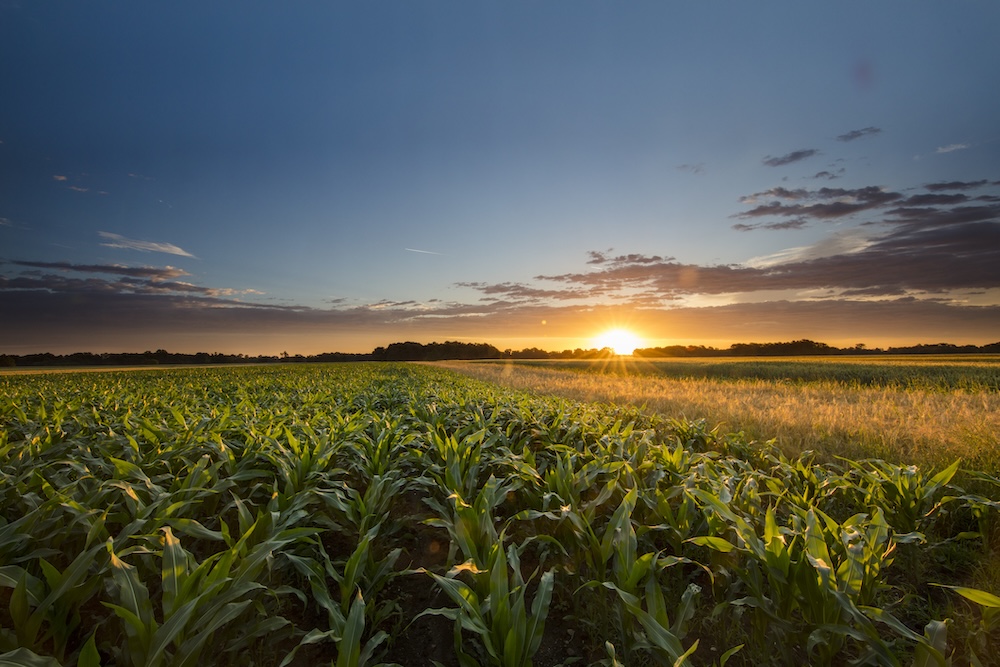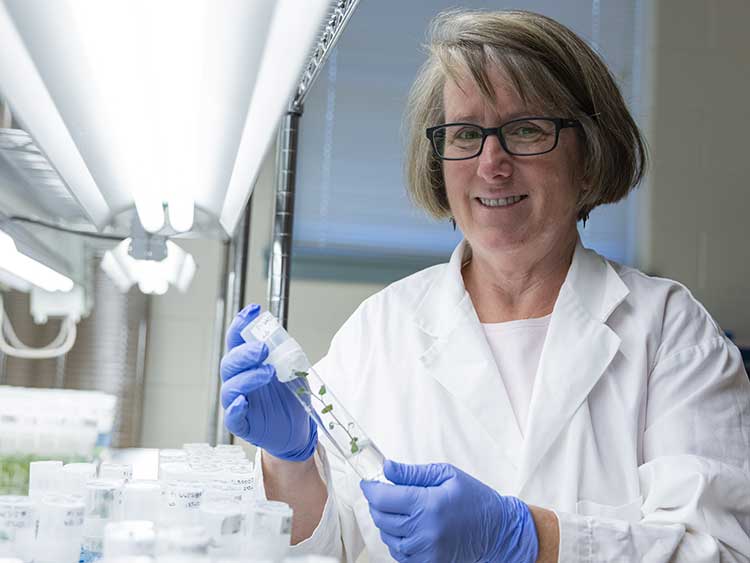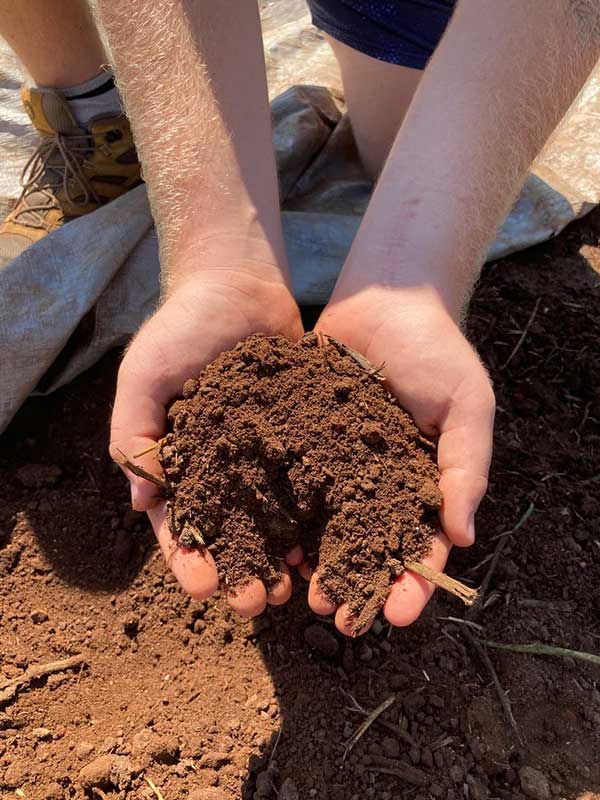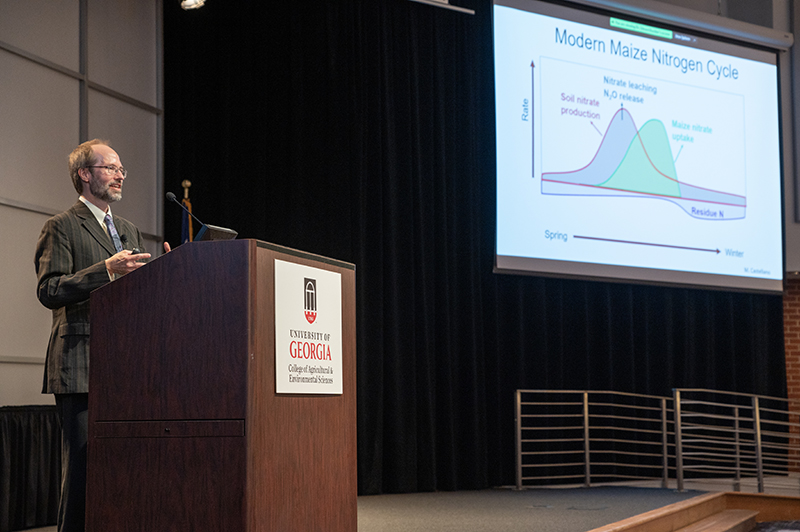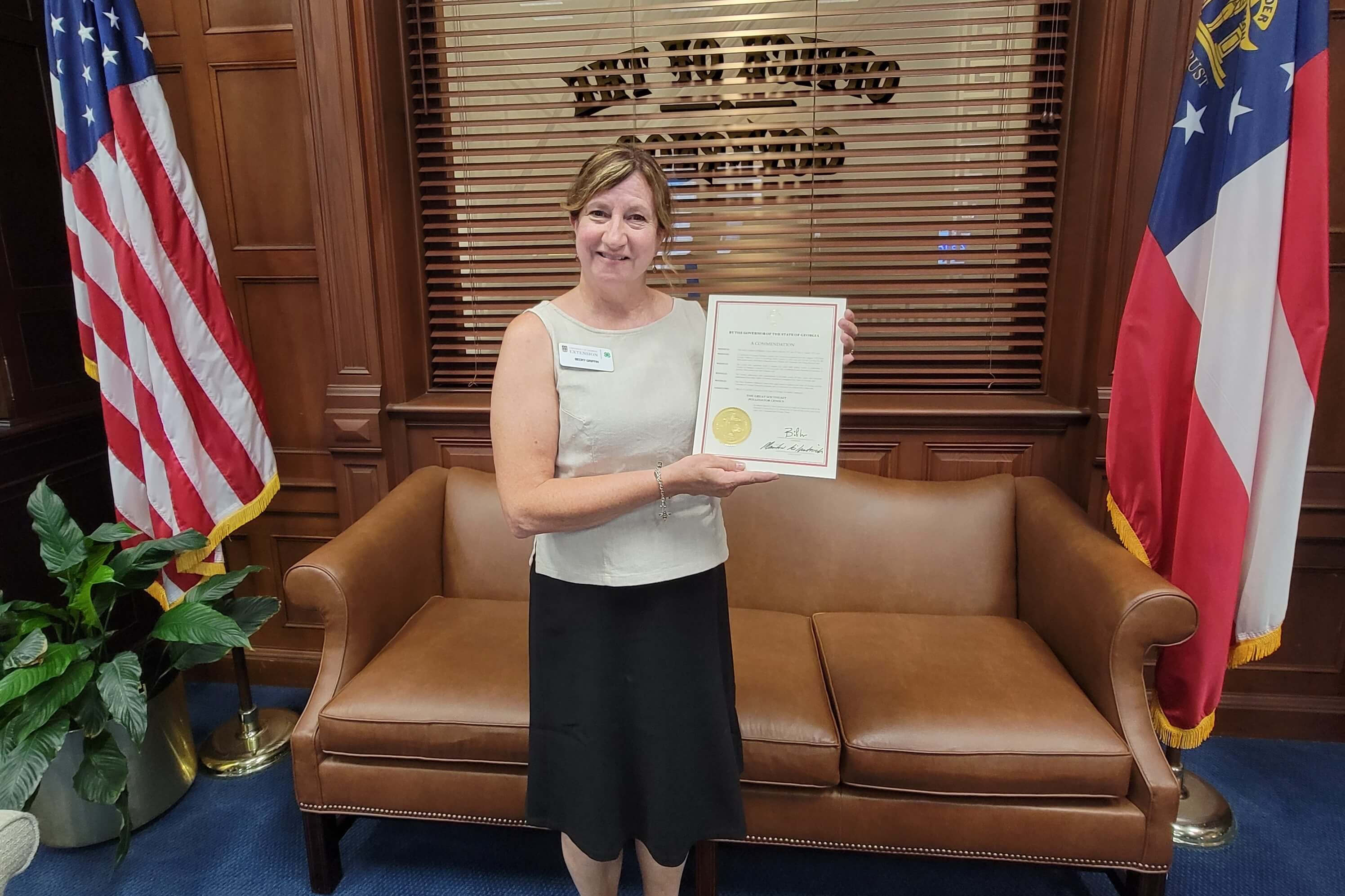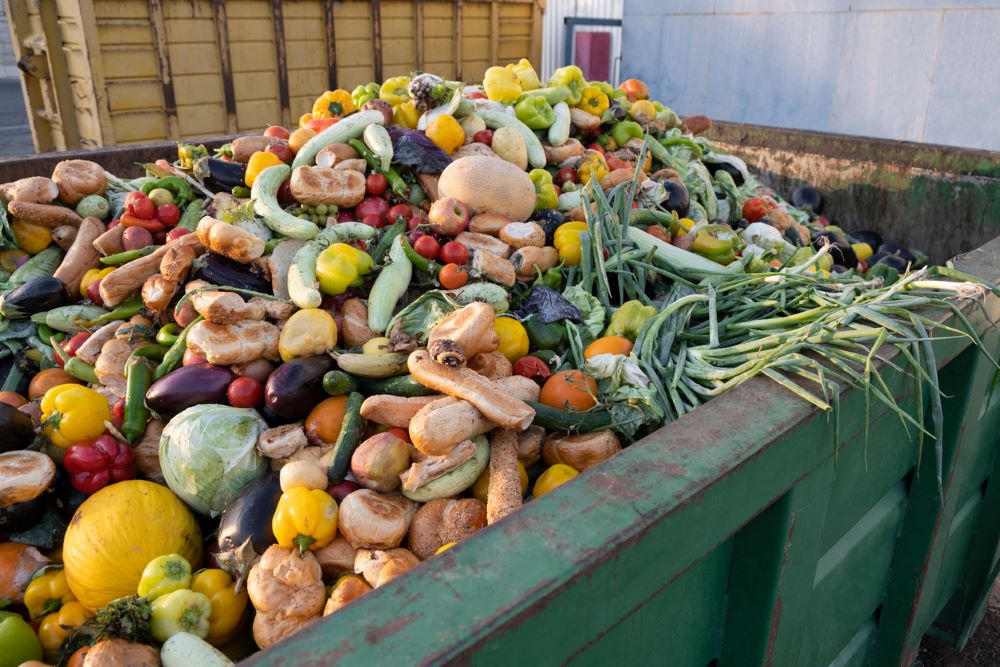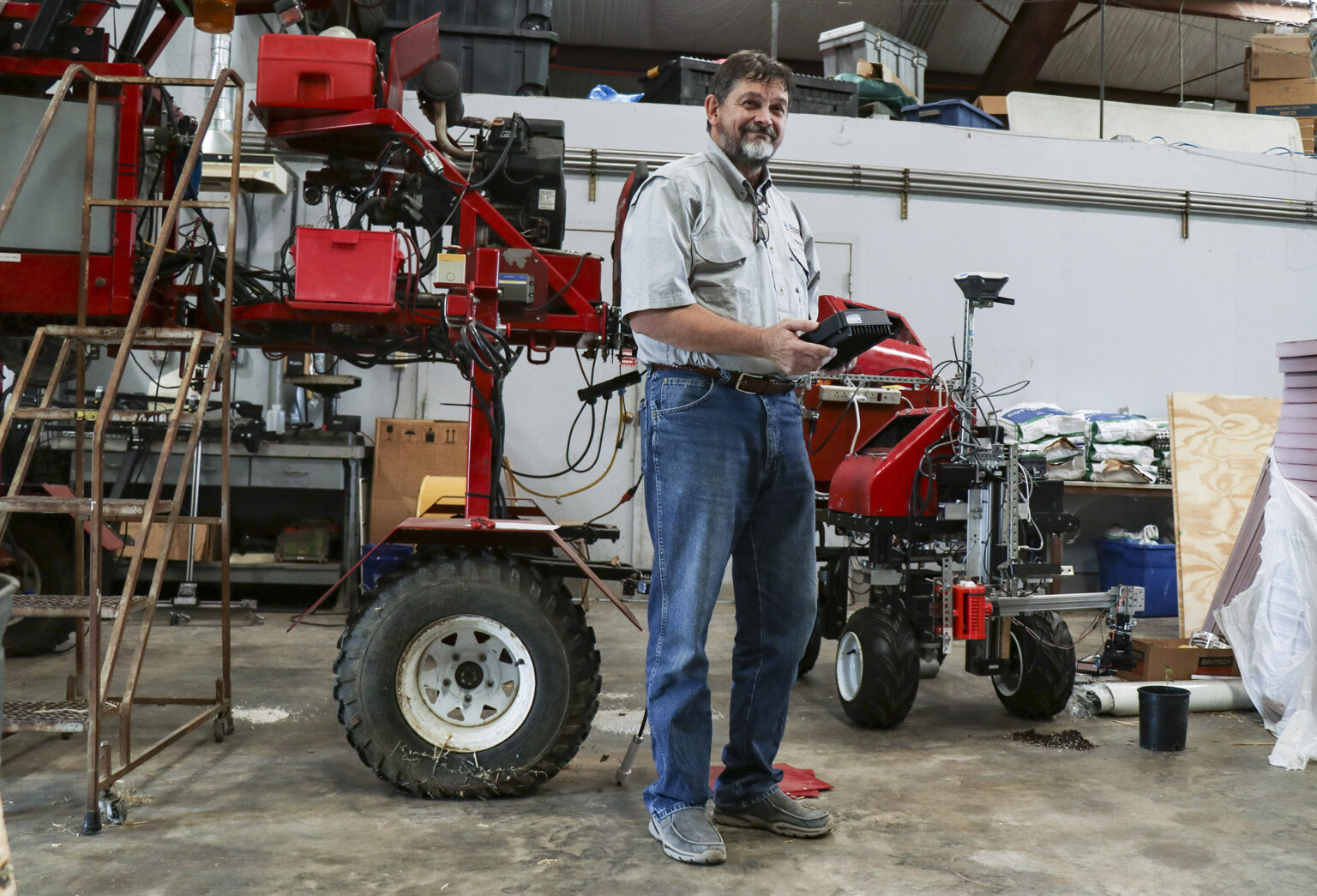 CAES News
CAES News
Blending science and philanthropy
Wheat breeders spend years meticulously crossing varieties to coax the best traits out of each species, carefully propagating plant varieties that are healthier, heartier and better suited for the environments where they are grown. Brewmasters are equally painstaking when choosing the components that will give their beers a specific flavor profile. These two exacting professions came together this spring when Athens-based Creature Comforts Brewing Co. reached out to the University of Georgia College of Agricultural and Environmental Sciences to find a sustainable wheat variety they could use to make a good beer for a great cause.

